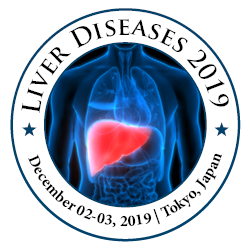
Dr Iftikhar Ahmed
Gastroenterologists
Title: Volatile organic metabolites as novel, non-invasive diagnostic biomarkers in Liver Disease
Biography
Biography: Dr Iftikhar Ahmed
Abstract
The diagnosis of liver disorders often requires extensive and invasive investigations including liver biopsy, and places a heavy burden both on healthcare resources and on the individuals during the period of disease-related disability leading to poor quality of life. Recently, there has been increasing scientific interest in the non-invasive biomarkers to diagnose liver diseases and to monitor the disease activity. Volatile organic metabolites have emerged as innovative biomarkers on the diagnostic armamentarium of GI and Liver diseases in the current era. The development of sophisticated analytical techniques has enabled the study and interpretation of changes in the faecal and breath volatile organic metabolites (VOMs) and its correlation with the pathophysiological mechanisms in liver disorders. VOMs are the chemicals that are the products and
intermediates of metabolism and may be altered during the diseases process. Changes in the signature of VOMs could potentially provide diagnostic information about health and disease. Multiple studies have reported the differences in VOM profiles of healthy controls compared to patients with liver disease. VOM profiles have been used to segregate patients by disease activity and the type of disease. The correlation of VOMs with microbiota is interesting and supports the hypothesis of gut microbial dysbiosis in the etiology of liver disease. This also provides an important platform to explore the role of dysbiosis in the pathogenesis of liver diseases and other GI disorders leading to the discovery of novel therapeutic targets. In future, further understanding of faecal VOMs may lead to the development of a rapid and simple point of care diagnosis and monitoring of liver disorders.

